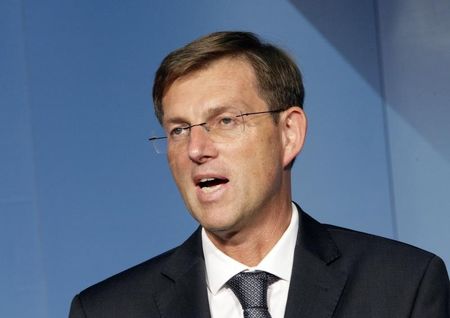By Marja Novak
LJUBLJANA (Reuters) - Slovenia's new government will be a three-party centre-left coalition which will have 52 seats in the 90-seat parliament, the head of the Party of Miro Cerar (SMC), which won July's snap election, said late on Wednesday.
Law professor and political novice Miro Cerar, who became PM-designate on Tuesday, said he would invite into government the pensioners' party Desus and the centre-left Social Democrats.
Both parties are sceptical about the privatisation which Slovenia has pledged to carry out to consolidate its public finances. The country saw its deficit soar to 14.7 percent of GDP late last year when it narrowly avoided an international bailout for its banks.
"We are determined to form a strong and quality government that Slovenia needs at this moment," Cerar told reporters after his party's board meeting.
President Borut Pahor nominated Cerar as prime minister on Tuesday and parliament is expected to confirm his nomination on Aug 25.
Coalition talks are expected to be completed next week while Cerar will have to nominate his cabinet in early September.
Cerar said his party decided against inviting the centre-left party of the outgoing Prime Minister Alenka Bratusek into the coalition. He said this was because Bratusek's former party caused the political crisis in the country and because the government she led nominated her as a candidate to be Slovenia's next EU commissioner, a decision which has been widely criticised as unethical.
Slovenia held a second early election in a row on July 13 because Bratusek resigned in May after she lost the battle for the leadership of her former party, the Positive Slovenia.
Meanwhile, Slovenia continues the privatisation processes of telecoms operator Telekom Slovenia and airport Aerodrom Ljubljana although Cerar had said he was opposed to privatisation of important strategic firms like Telekom, Aerodrom, port Luka Koper and railways but would support the sale of other state firms.

Slovenia, which declared independence from the former Yugoslavia in 1991, has been reluctant to privatise state firms over the past two decades so the government still controls about 50 percent of the economy.
(Reporting By Marja Novak; Editing by Toby Chopra)
